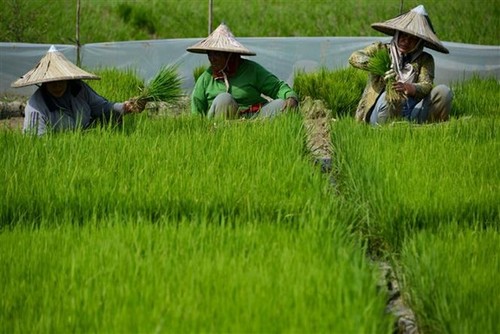 Rice farmers in Indonesia's Aceh province. (Photo: AFP/VNA) Rice farmers in Indonesia's Aceh province. (Photo: AFP/VNA) |
Under the plan, the farm estates will expand nearly 800,000 hectares, an area 10 times the size of neighboring Singapore, to grow rice, cassava and maize for the world's fourth-most populous country, Widodo told a cabinet meeting.
He said the project would anticipate the world's food crisis due to the COVID-19 pandemic, mitigate climate change as well as to curb the country’s reliance on imported food. The early phase has already started in North Sumatra, as well as central Kalimantan on the island of Borneo. Eventually it may be extended to three more regions on the world's biggest archipelago – South Sumatra, Papua and East Nusa Tenggara.
The project, however, is facing criticism from environment groups who have warned such projects mostly exploit peatland areas and encourage forest fires blamed for the seasonal haze that has choked much of the region for the past two decades.
Earlier this month, Greenpeace Indonesia warned that converting carbon-rich peatland into giant farmlands could cause an environmental catastrophe.